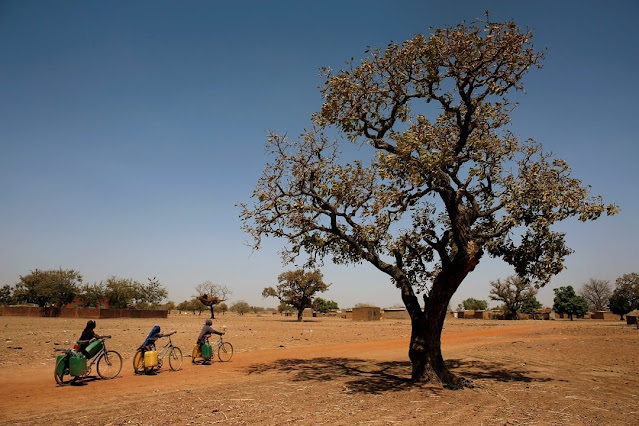Introducing inequalities: colonialism and missed opportunities for girls and women
"In 80 per cent of households with water shortages, women and girls are responsible for water collection"
"1 in 10 girls in sub-Saharan Africa miss school during their menstrual cycle, which equals as much as 20% of a school year"
"In 80 per cent of households with water shortages, women and girls are responsible for water collection"
"1 in 10 girls in sub-Saharan Africa miss school during their menstrual cycle, which equals as much as 20% of a school year"
These statistics are alarming, to say the least. There are so many issues African women and girls face daily just to access water and sanitation facilities. Collecting water, or resorting to open defecation has never been safe for women. As a young woman, who was born in South Asia, but raised in London, I have witnessed first-hand the repercussions of inadequate water and sanitation facilities, including toilet facilities. It is a hardship I have never experienced but is not something I have been sheltered from. Education to me is both a privilege and a right. However, in Africa, especially sub-Saharan Africa, many girls' education is compromised as it is their prime duty to collect water. Another reason why many girls in Africa have limited education is the lack of toilets provided in schools and the inconsideration of different female sanitation requirements. This is often because women typically do not engage in decision-making, and men, who are involved in decision-making and the maintenance of water supplies, do not take account of women's different sanitation needs, e.g. menstruation.

I found it uncomfortable yet powerful reading Wainaina's article on How to Write About Africa. He satirically alludes to the over-generalisation and depiction of Africa and Africans as a heterogeneous and harmonious nation, whereby everyone and every nation share the same experiences. I mustn't make the same assumptions about issues women in Africa face regarding the water crisis. It is crucial that I do not impose Western standards of what female liberation is in my blog: it is harmful to portray aspects of African women's lives, which they are otherwise perfectly happy with, as oppression. Wainaina's article is radically and provocatively informative.
Colonialism
The African continent has an abundance of freshwater, while simultaneously being the world's driest region. Here, this paradoxical nature of water in Africa demonstrates that the key issue of water in Africa is distribution, availability and accessibility. For example, while Congo is among the top 10 countries in the world with water resource availability, only 64% of Congo has access to piped water. There is a strong correlation between the duration of colonialism and improved water and sanitation infrastructure. Countries with longer colonial histories acquired modern infrastructure, such as water and sanitation infrastructure than those with a shorter legacy of colonialism. This is because a salient objective of colonial powers was to assimilate and modernise Africans, which required the settlement of colonial powers in Africa. Colonial settlers in Africa attempted to reconstruct European living standards in Africa, which resulted in the development of water and sanitation infrastructure. For example, 95.7% of people had access to piped water in South Africa, which was under colonial administration from 1795 to 1961, yet only 39.2% of people in Guinea, which was under colonial rule from the 1890s to 1958, have access to piped water. It is needless to say that European colonialism has hindered African development, even today, although all African countries have gained independence, colonial impacts maintain the underdevelopment of Africa.
This blog will explore the everyday challenges that women in Africa face as a result of inadequate water and sanitation facilities and infrastructure available to them. Women are disproportionately disadvantaged by the water crisis in Africa. Some of the topics I will be covering include period poverty and the hygiene issues surrounding the lack of toilets available to women and girls. Additionally, I will be discussing gender-based violence also as a result of lack of access to adequate toilets. Furthermore, I will also analyse the consequences of having girls and women responsible for water collection on female education, career and financial liberation and health. Finally, I will assess the importance of female participation in decision-making regarding water supply and maintenance.

A strong start to your blog with great use of a statistic! It would be nice if you could add subheadings to more clearly layout your blog as it makes it easier to follow but a strong start regardless!
ReplyDelete